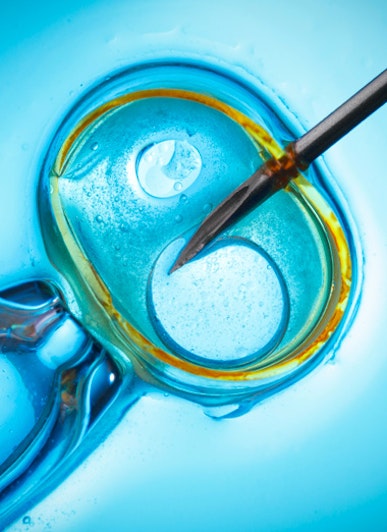Intracytoplasmic Sperm Injection
When male factor infertility is present, hopeful parents can often benefit from intracytoplasmic sperm injection, or ICSI. This process is a specialized form of in vitro fertilization (IVF) that involves injecting sperm directly into an egg. At Denver Fertility Care in Englewood, CO, Drs. Bruce Albrecht and Dana Ambler offer a variety of assisted reproductive treatments. With decades of combined experience, they tailor each treatment plan to the specific needs of their patients.
/https://d3b3by4navws1f.cloudfront.net/iStock-653378396.jpg)
When Is ICSI Recommended?
Most often, ICSI is recommended for couples who are experiencing male-factor infertility issues such as:
- Low sperm count (oligospermia)
- Irregularly shaped sperm (teratozoospermia)
- Poor sperm quality
- Poor motility, or movement (asthenozoospermia)
- Sperm cells that are unable to penetrate the egg
- Obstructive or non-obstructive azoospermia
However, it is important to note there are other reasons why ICSI may be recommended. This treatment may be helpful if:
- Frozen sperm or eggs are being used: Freezing can sometimes cause sperm to be less active and the egg shell to be hardened. These challenges can often be overcome with ICSI.
- PGD/PGS is part of the treatment plan: Preimplantation genetic diagnosis (PGD) is a process that can help detect potential genetic disorders within embryos. Some doctors believe that traditional fertilization methods may cause sperm to surround the embryo, thereby interfering with PGD test outcomes. In these cases, ICSI may be recommended for more accurate results.
- Previous IVF cycle resulted in few or no fertilized eggs: In some instances, IVF may still be unsuccessful, even if healthy eggs and high sperm counts are confirmed. In these cases, ICSI can help improve the chances of fertilization and therefore conception.
- In vitro maturation (IVM) is part of the fertility treatment: IVM involves retrieving the eggs from the ovaries before full maturation.
What to Expect during Treatment
If you choose ICSI, your treatment process will be quite similar to traditional IVF. Once the eggs have been retrieved and the sperm sample has been obtained, an embryologist will then inject a single sperm into each egg using a small needle and a microscope. This step is performed instead of the egg and sperm being co-incubated. Three to five days later, any healthy embryos are transferred to the uterus.
Risks and Benefits of ICSI
ICSI offers a wide range of advantages to qualifying patients. In fact, this procedure fertilizes 50 to 80 percent of retrieved eggs. Once fertilization occurs, couples can experience the same success rates as those who undergo IVF alone.
It is important to note that ICSI slightly increases the risk of birth defects such as Angelman syndrome, hypospadias, Beckwith-Wiedemann syndrome, and sex chromosome irregularities. These conditions occur in less than one percent of children conceived through IVF with ICSI.
Contact Our Practice Today
If you are interested in learning more about ICSI, schedule an appointment with our doctors at Denver Fertility Care. Call us at (720) 465-5586 or contact us online anytime.








